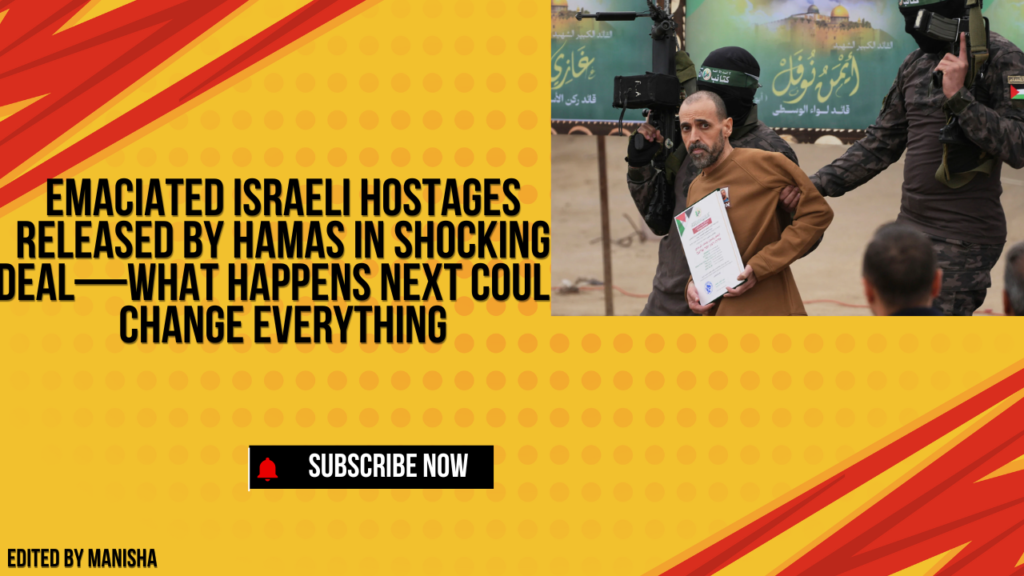
On Saturday, the Palestinian militant group Hamas released three Israeli hostages whose emaciated condition alarmed Israelis. The hostages were part of the deal aimed at halting the 15-month conflict in Gaza. The men—Ohad Ben Ami, Eli Sharabi, and Or Levy—were abducted during the Hamas-led attack on October 7, 2023, at Kibbutz Be’eri and the Nova music festival. When they were handed over by Hamas militants, they appeared gaunt, weak, and pale, with their condition worse than previous hostages released under the truce deal.
Ohad Ben Ami’s mother-in-law, Michal Cohen, described the sight of her family member as “awful” when she saw him on the Hamas stage, where a masked man asked questions while militants with rifles stood by. In addition to the hostages, dozens of Hamas fighters were visible in Gaza during the handover to the International Committee of the Red Cross (ICRC), after which the hostages were transported to Israeli forces.
Israeli Prime Minister Benjamin Netanyahu expressed that the sight of the frail hostages was shocking and would be addressed, while President Isaac Herzog condemned the release ceremony, calling it “cynical and vicious.” The Hostage Families Forum compared the images to Holocaust survivors, demanding that all hostages be freed.
In exchange for the release of the hostages, Israel freed 183 Palestinian prisoners, including some convicted for deadly attacks, along with 111 individuals detained during the war. A bus carrying 42 released Palestinian prisoners was greeted with celebration in the West Bank, where the freed prisoners expressed their frustration with Israel’s treatment of them during their detention.
The International Criminal Court has issued arrest warrants for both Israeli and Hamas leaders for alleged war crimes. Reports from human rights groups have highlighted abuses against Palestinians in Israeli detention since the conflict began. Despite ongoing investigations by the Israeli military, allegations of systematic abuse have been denied.
Some of the freed hostages face emotional trauma, with Sharabi’s family having been killed in the attack on Kibbutz Be’eri, and Levy losing his wife during the assault but reuniting with his three-year-old son.
The hostage swap is part of a broader ceasefire deal that has returned 13 Israeli and five Thai hostages while releasing 583 Palestinian prisoners since January 19. However, there are growing concerns about the deal collapsing before all hostages are freed. U.S. President Donald Trump recently suggested relocating Palestinians from Gaza and turning the area into a “Riviera of the Middle East,” a proposal rejected by many Arab states and Palestinian groups as potentially amounting to ethnic cleansing. Hamas used the hostages’ handover as an opportunity to assert that it must be included in future Gaza negotiations.
The first stage of the ceasefire deal involves the release of 33 Israeli children, women, and vulnerable men in exchange for almost 2,000 Palestinians. Negotiations are ongoing for the next phase, which will involve further hostage releases and a full Israeli troop withdrawal from Gaza, as part of an effort to bring the war to an end. The Hamas-led attack on October 7, 2023, killed over 1,200 people in Israel and led to the capture of more than 250 hostages. In retaliation, Israel’s military action has resulted in the deaths of over 47,000 Palestinians, according to Gaza health officials.